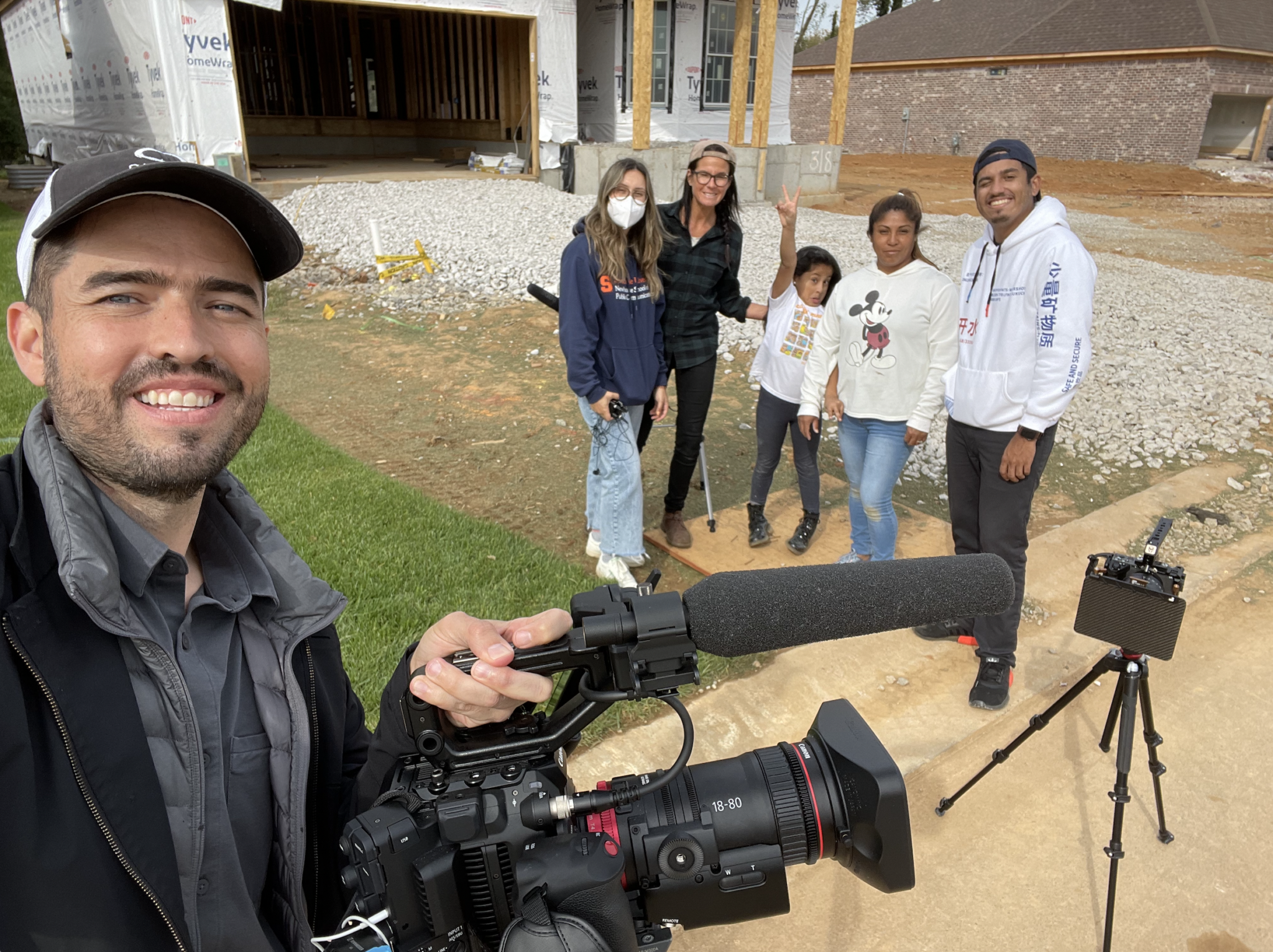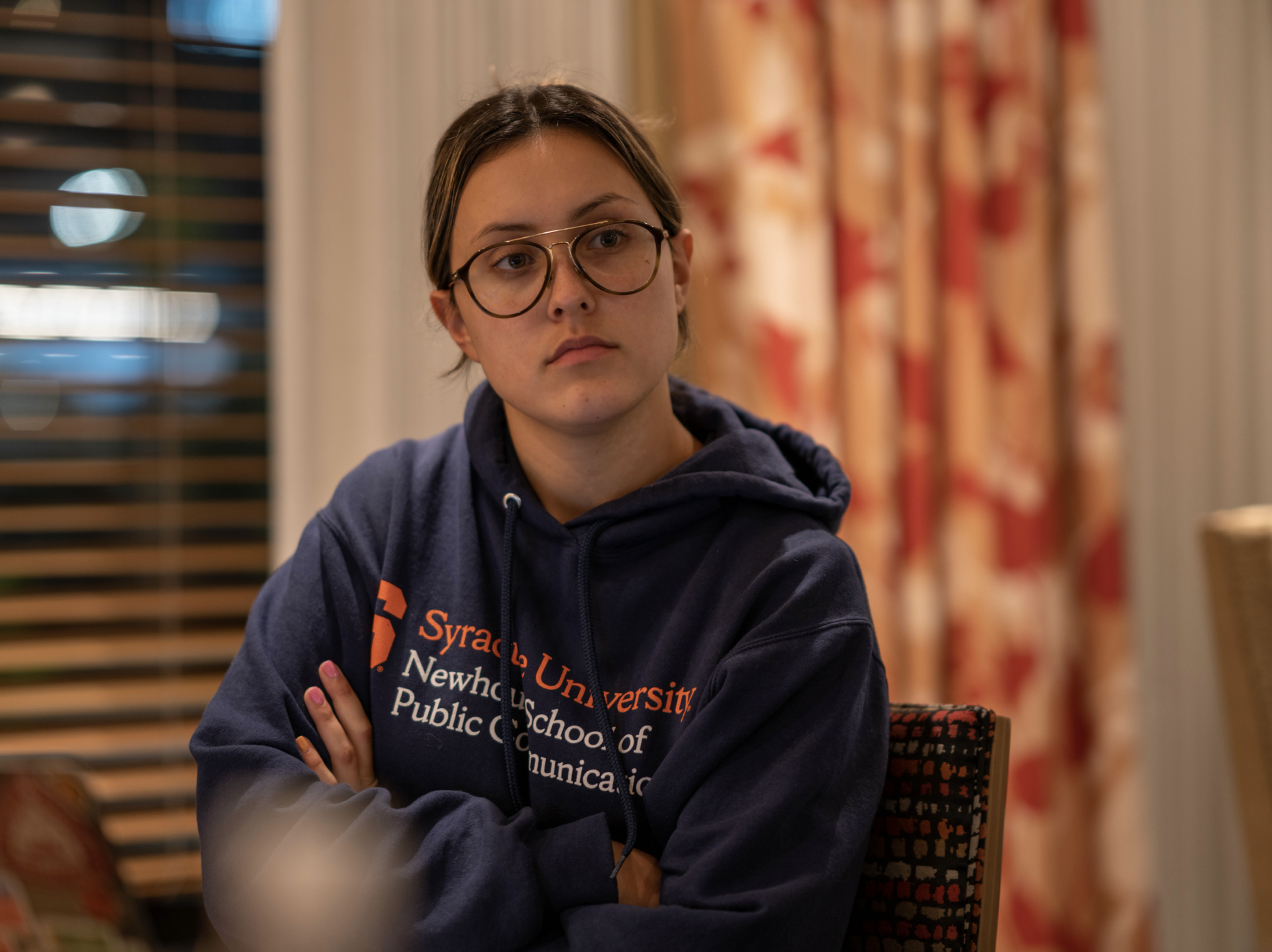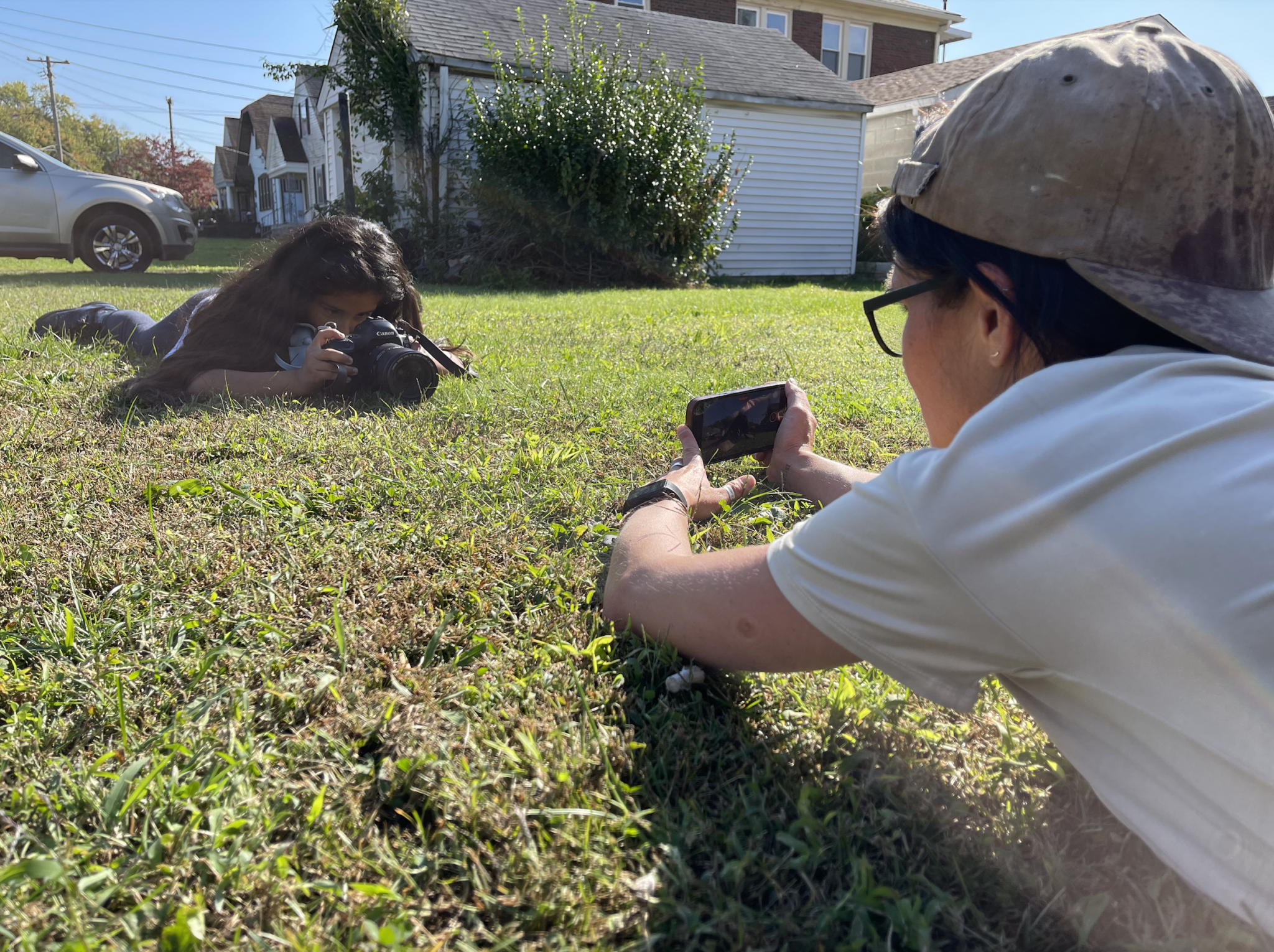Newhouse students gain on-the-ground experience as interns on PBS “Frontline” documentary
Six Newhouse students interned for the PBS “Frontline” documentary “After Zero Tolerance,” directed and produced by Oscar Guerra, a “Frontline” producer and University of Connecticut associate professor. The students worked intermittently on the film for the past two years before it aired on Dec. 6, 2022.
The documentary—produced in partnership with UConn and the Newhouse School—tells the story of a Honduran family struggling to reunite after having been separated three years earlier at the United States-Mexico border.
Guerra says it’s a powerful story. “Media has the power to connect people, and producers have the responsibility to bring these issues to mainstream media,” he says.
The film was conceived by Guerra in early 2021. The opportunity for students to intern with the production came after Newhouse dean Mark J. Lodato connected with Raney Aronson-Rath, the show’s editor-in-chief and executive producer. Lodato had worked with “Frontline” in his previous role as associate dean of Arizona State University’s Walter Cronkite School of Journalism and Mass Communication.
“This partnership with PBS ‘Frontline’ provides yet another opportunity for our students to acquire on-the-ground experience in the field,” Lodato says. “They were able to develop their skills in the mechanics of documentary production, and—perhaps even more importantly—they were able to take part in a project that truly demonstrates the power of storytelling.”

After Lodato secured the partnership, Newhouse professors recommended students they knew would be an asset to the documentary. The participating students were Patrick Linehan ’21, Adriana Rozas Rivera G’21, Cole Strong ’22 and Estheralice Lopez ’22, now alumni, plus Shantal Guzman and Maranie Staab. All the students’ names are listed in the credits of the documentary.
The six were paid interns for the production, assisting with research, website development, translation, travel, shooting and post-production. The production lasted from early 2021 to late 2022; when some of the students graduated, others took their place on the team.
“We are so pleased to have partnered with students from the Newhouse School,” Aronson-Rath says. “These emerging journalists embody the next generation of storytellers, and we are excited to see the important stories they tackle as they continue to grow in their careers.”
Guerra knew the documentary needed captioning to make it accessible for viewers who do not speak Spanish, so magazine, news and digital journalism senior Guzman worked on the film’s post-production team as a transcriber.
Guzman, who speaks fluent Spanish, took the internship opportunity despite her lack of experience in video production. She transcribed and translated the many interviews with the immigrant family members.
“As a dual major in political science, this experience overall was really great and I am incredibly glad I was able to be a part of it,” Guzman says.

Rozas Rivera worked as a project manager on the documentary, guiding the other Newhouse students as they reviewed media, image collection and integrated research. Similar to Guzman, she began working on the piece as a translator. Given her interest in bilingual storytelling, Rozas Rivera was excited to join the team. She later became a field producer, budgeting and planning the trip to meet the immigrant family.
“The most important part about the film, to me, is its focus on Spanish language voices,” Rozas Rivera says. “Usually, you do not see documentaries that focus on Latino communities without dubbing over them in English, but Oscar [Guerra] lets the captioning do the work by highlighting these Latino voices.”
Both Rozas Rivera and Staab—who was a graduate student in the multimedia, photography and design program when she worked on the project—traveled with the “Frontline” team to meet the family in Louisville, Kentucky in October 2021. Genesis, the young daughter who had been separated from her family at the border, was reunited with her mother after three years. Guerra’s team was there to capture that reunion as well as additional footage and interviews.
Staab shot B-roll during the day; at night, she and Rozas Rivera transferred and backed up files, reviewed notes and prepared for the next day.
Staab, who has worked on immigration stories before, says her favorite part of the shoot was playing with Genesis. “I think at the time she was six years old,” Staab says. “She liked cameras, so we were able to just play around with them and [I was able to] establish a little bit of a rapport with her.”

Though humble about her contribution to the film, Staab is thankful for the experience. “I’m thrilled to be able to contribute to something that I see is just an important story,” she says.
To celebrate the film, the Newhouse School held a premiere in December. Many students and faculty attended; it proved to be a powerful and reflective moment for the participating students who took this opportunity to show their work to a wide audience.
“It was so awesome attending the premiere,” Guzman says. “I had the opportunity to speak about my experience with those there. It was my first time watching the entire documentary and it was really cool to see the finished product and my name in the credits.”
“After Zero Tolerance” is now available to watch.
Tessa Meehan is a senior public relations major at the Newhouse School.
Madelyn Geyer, content manager at the Newhouse School, also contributed to this article.